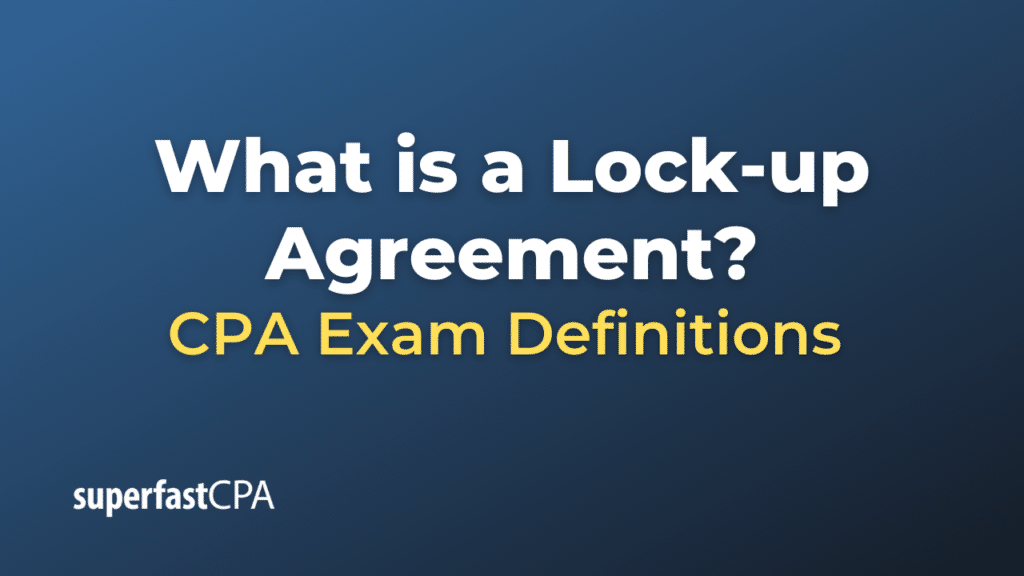Lock-up Agreement
A lock-up agreement is a legally binding provision preventing insiders of a company, such as major shareholders or employees with equity compensation, from selling their shares for a specified period of time. They are commonly used during the Initial Public Offering (IPO) process or during a merger and acquisition.
- During an IPO: When a company goes public, the underwriting investment banks often require a lock-up agreement to prevent insiders from selling their shares immediately after the company goes public. The lock-up period usually lasts around 180 days (6 months), but it can be shorter or longer. This is done to prevent the market from being flooded with too many shares of the company, which could depress the share price.
- During a Merger or Acquisition: Lock-up agreements can also be used in M&A transactions. For example, in a stock-for-stock merger, the shareholders of the company being acquired might receive shares of the acquiring company. A lock-up agreement can be used to prevent these shareholders from immediately selling their new shares after the transaction is completed.
In addition to these situations, lock-up agreements can also be used in private funding rounds and other situations where the company or investors want to restrict the sale of shares for a certain period of time. The exact terms of a lock-up agreement, including the length of the lock-up period and any exceptions to the lock-up, will vary based on the specific agreement.
Example of a Lock-up Agreement
Let’s use an example of a lock-up agreement in the context of an initial public offering (IPO).
Consider a company, we’ll call it StartUp Inc., which is planning to go public. One of the major shareholders of StartUp Inc. is its CEO, who owns a substantial amount of shares.
As StartUp Inc. prepares for its IPO, the underwriting investment bank arranges for a lock-up agreement. This agreement stipulates that major shareholders, such as the CEO, cannot sell their shares for a period of 180 days following the IPO. This is done to stabilize the stock price after the IPO. If insiders were allowed to sell their shares immediately following the IPO, it could lead to an oversupply of shares on the market and potentially depress the stock price.
So, with this agreement, the CEO is legally bound not to sell any of her shares in StartUp Inc. for the specified period (in this case, 180 days) following the company’s IPO. After the lock-up period expires, the CEO and other insiders would then be free to sell their shares, assuming no other restrictions are in place.
This is a simplified example, but it gives a sense of how a lock-up agreement might function in the context of an IPO. It’s also worth noting that the specific terms of a lock-up agreement can vary. For instance, sometimes a portion of shares may be sold before the lock-up period ends, or the lock-up period might be extended under certain circumstances. The exact terms would be detailed in the agreement itself.












